Lazer Genesis helmet review
The newly relaunched Genesis is the lightest and most comfortable lid Lazer has ever produced
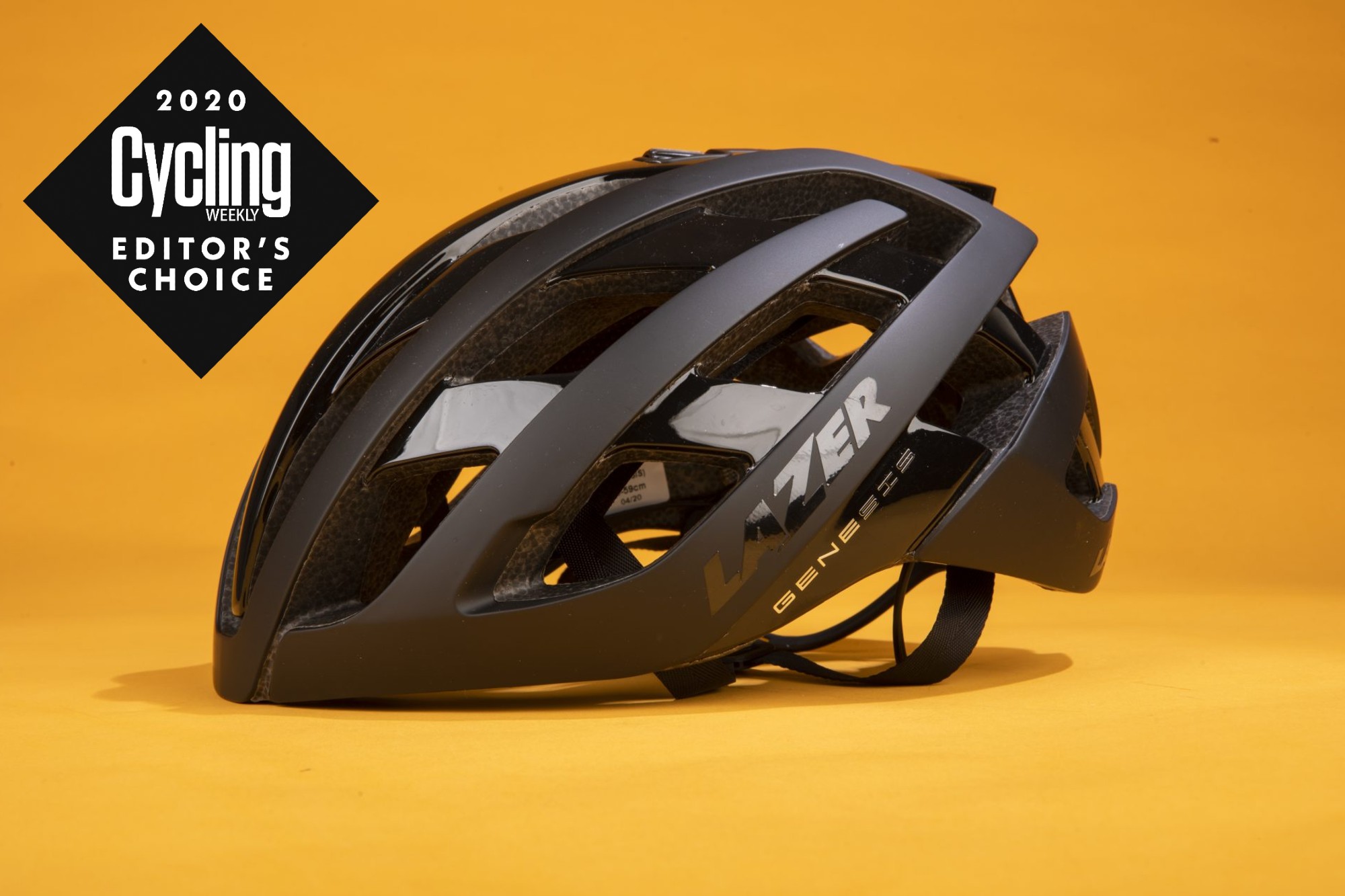
Lazer has managed to create an incredibly light, comfortable and versatile helmet that is certainly a pleasure to wear and even has good looks to boot.
-
+
Very light
-
+
Comfortable shaping and padding
-
+
Secure
-
-
To get the versatility of the aeroshell adds cost
-
-
MIPS version is more expensive and heavier
You can trust Cycling Weekly.
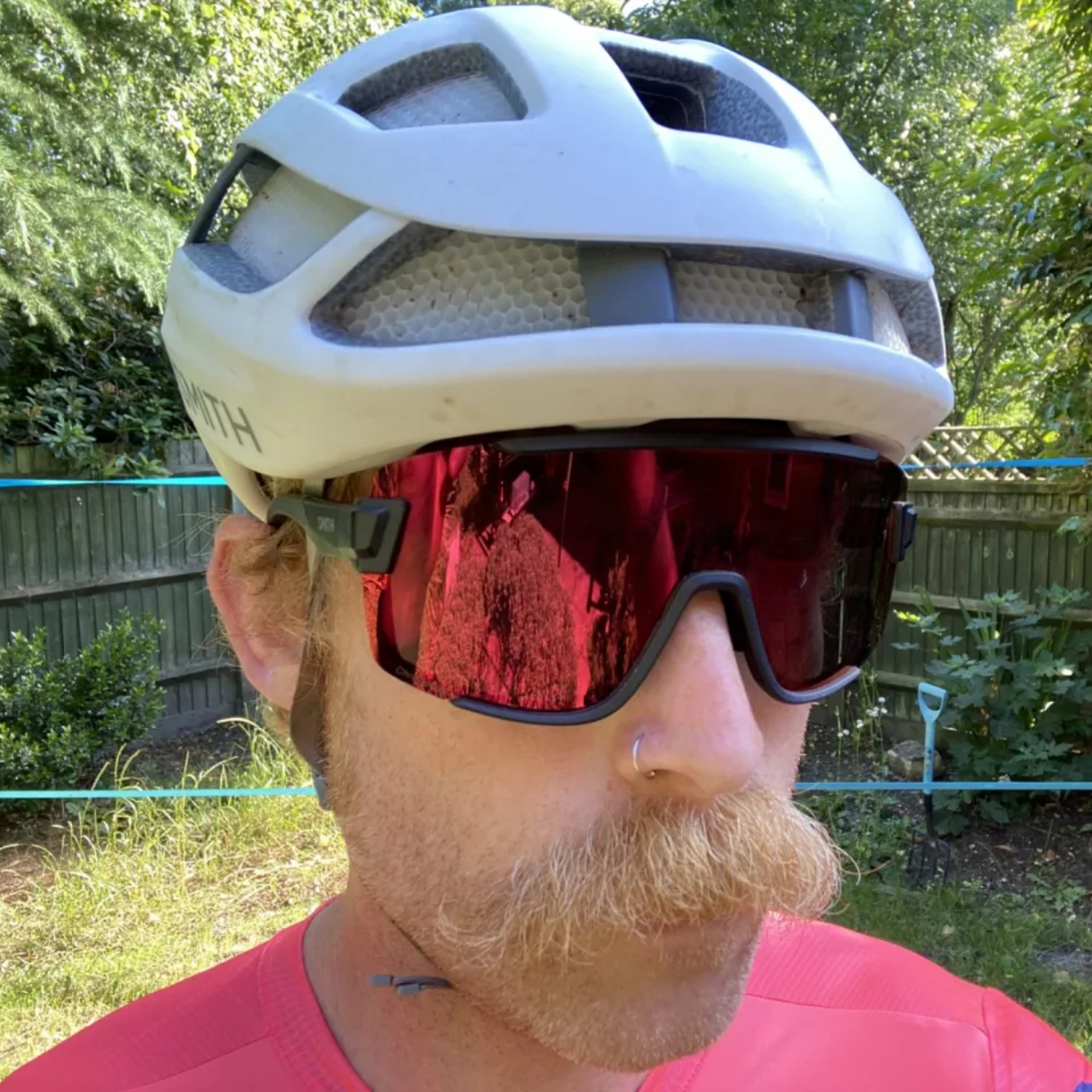
The Lazer Genesis helmet was selected for an Editor's Choice award in 2020. This year's list contains 78 items which scored a 9 or 10/10 with our tech team - this gear is the best of the best, and has received the Cycling Weekly stamp of approval.
The 2019 World championships heralded the launch of the Lazer Genesis as the Belgian helmet expert's all-new range topper. Seen atop the likes of Mathieu van der Poel and other Lazer supported riders it was noticeable for its very svelte and more conformist shaping compared to the likes of Lazer's existing and instantly recognisable Lazer Z1.
Tech savvy readers will be aware that the Genesis name is not a new one for Lazer, it already had a helmet under this name but it was ripe for a revamp and Lazer wanted to show just how far it could push the envelope.
The first thing you notice about the Genesis is just how light it feels both in your hands and certainly on your head. At 205 grams for our medium test helmet (Lazer claim bang on 200 grams) and a claimed 190 gram weight for size small, it is one of the lightest production helmets we have tested.
Lazer has achieved the low weight by way of an in-mould construction (where the inner polystyrene and outer shell are heat shaped and bonded together) along with a paring away of the construction material and retention system. Twenty two vents and internal channelling make it feel like it is more air than helmet and it really does live up to the cliché of disappearing as soon as you start wearing it.
From a safety perspective, this lid ticks all the boxes with regards certification but in order to keep weight down on this particular version it foregoes any additional safety features such as MIPS, something riders are now almost insisting on at this level. There is a MIPS version available but this is £199.99 and obviously will be heavier - coming in at a claimed 220g in a small.
Lazer has stuck to its distinctive Rollsys retention system for the Genesis. Rather than have a dial at the rear this relies on a top mounted roller wheel to adjust tension. It's incredibly easy to use and allows the main retention system to be very lightweight, enclose more of the cranium and be way more hair friendly - something I'm told is really useful if you happen to be endowed with long hair.
The rear retention cradle also has a large amount of vertical adjustment to fine-tune the fit to your individual head shape.
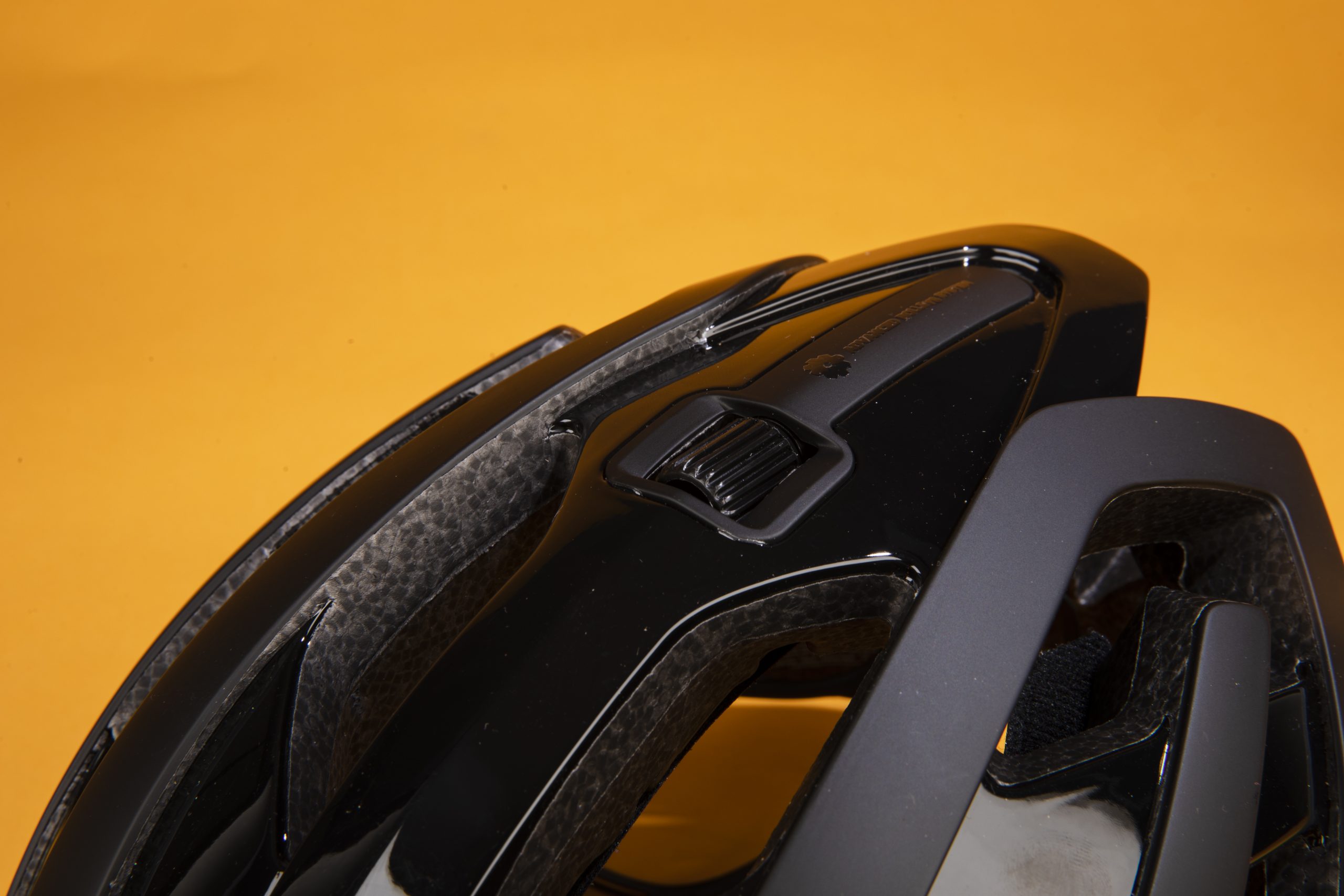
The Genesis also comes with two sets of pads, a Race oriented set that is very light and a Comfort set that is more thickly padded. The neat thing here is the four piece pad set can be adapted for your needs, however I personally tried both and stuck with the Comfort set as the weight difference is negligible but head comfort is noticeable.
The Lazer Genesis is a ver comfortable helmet to wear. It has an internal shaping that seems to fit my head very well without any pressure areas and the best thing is it manages this without increasing volume or looking too large on the head. It really is sleek and unobtrusive, even compared to the Z1 which was our previous favourite Lazer lid.
The straps are soft and easy to manipulate around the temple and ear and stay in place very well. This piece of kit also works well with most eyewear I have been testing, although with the slightly longer arms of a pair of 100% S3 glasses I did notice they fouled the cradle a little.
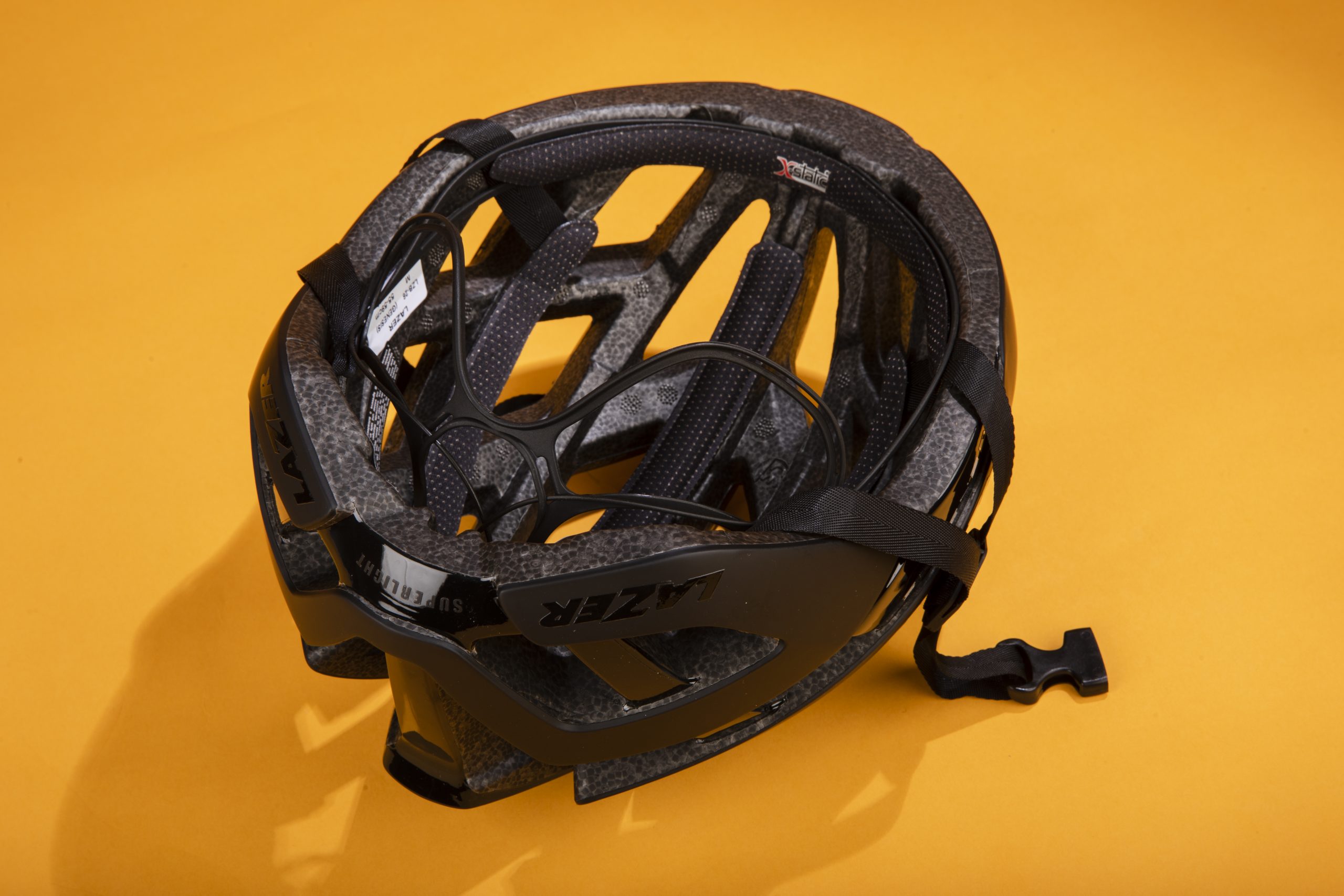
Lazer is renowned for the versatility of its top-end helmets and the Genesis is no different in its ability to be one cycling helmet for a number occasions. This is thanks to the optional aeroshell that custom fits to it and has – hence the name – aero properties to rival some of the dedicated closed off helmets on the market. This aeroshell option comes at a cost of £19.99 so it still comes in at cheaper than a lot of other dedicated aero helmets such as the Specialized Evade.
The added bonus of the aeroshell is it increases the Genesis' ability to withstand the weather, acting as a great rain shield as well as preventing a cold wind from inflicting it's usual punishment. When the weather gets better or you need more cooling, simply take off the aeroshell and the performance of the venting is marked and noticeable straight away.

Thank you for reading 20 articles this month* Join now for unlimited access
Enjoy your first month for just £1 / $1 / €1
*Read 5 free articles per month without a subscription

Join now for unlimited access
Try first month for just £1 / $1 / €1
Get The Leadout Newsletter
The latest race content, interviews, features, reviews and expert buying guides, direct to your inbox!
James Bracey's career has seen him move from geography teacher, to MBR writer, to Cycling Weekly's senior tech writer and video presenter. He possesses an in-depth knowledge of bicycle mechanics, as well as bike fit and coaching qualifications. Bracey enjoys all manner of cycling, from road to gravel and mountain biking.
-
 'I start every race to win' - Mathieu van der Poel fired up ahead of Paris-Roubaix showdown with Tadej Pogačar
'I start every race to win' - Mathieu van der Poel fired up ahead of Paris-Roubaix showdown with Tadej PogačarTwo-time winner says he has suffered with illness during spring Classics campaign
By Tom Thewlis Published
-
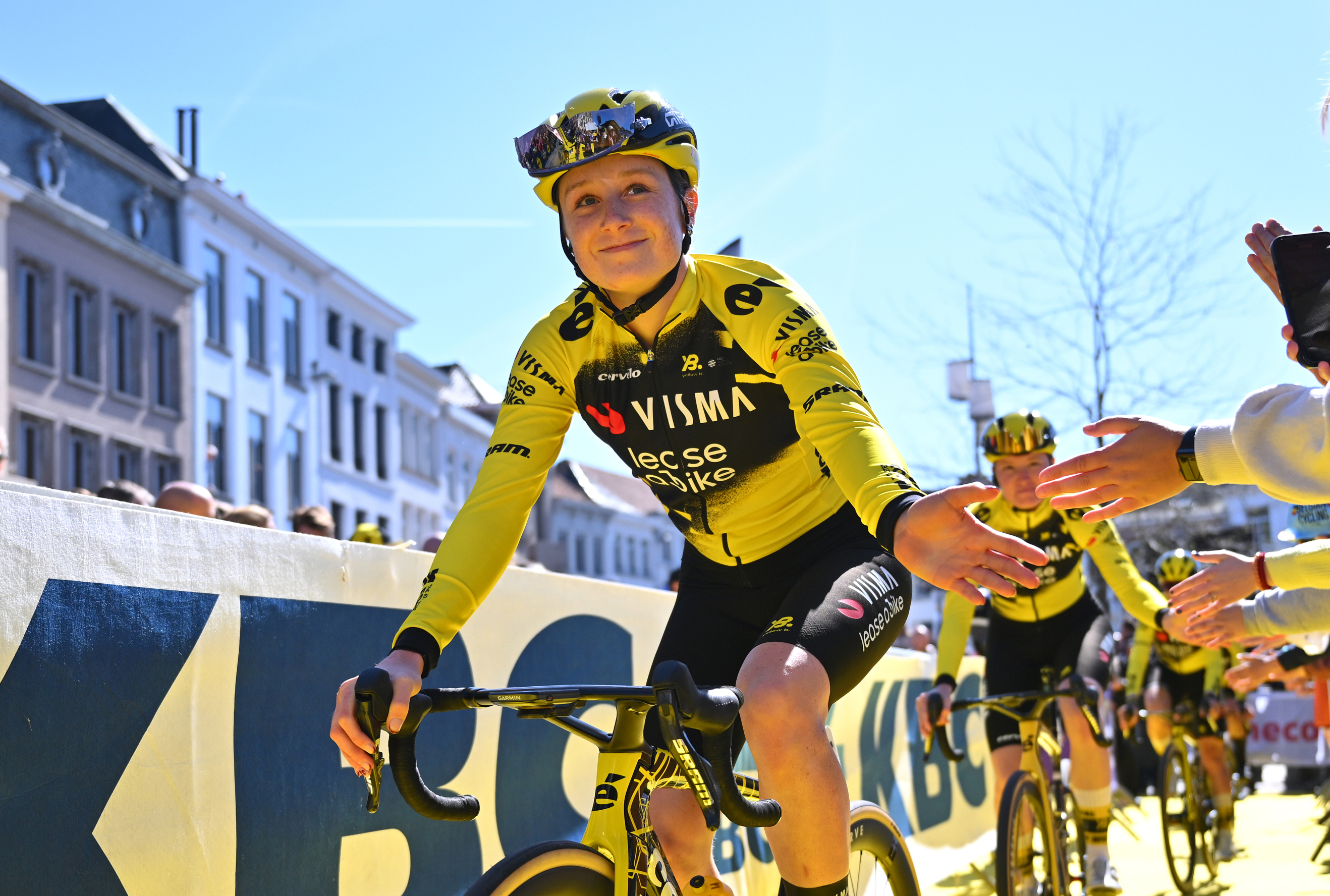 'It's really surreal that now I'm part of it' - 19-year-old Imogen Wolff set to go from spectator to racer at Paris-Roubaix
'It's really surreal that now I'm part of it' - 19-year-old Imogen Wolff set to go from spectator to racer at Paris-RoubaixBrit first came to see the 'Hell of the North' when she was six
By Tom Davidson Published
-
 I ran Paris-Roubaix’s Arenberg sector and now I never want to cycle it
I ran Paris-Roubaix’s Arenberg sector and now I never want to cycle itThe five-star stretch of the Hell of the North was not an ideal surface for a 4.5km run, but it made for an interesting time
By Adam Becket Published